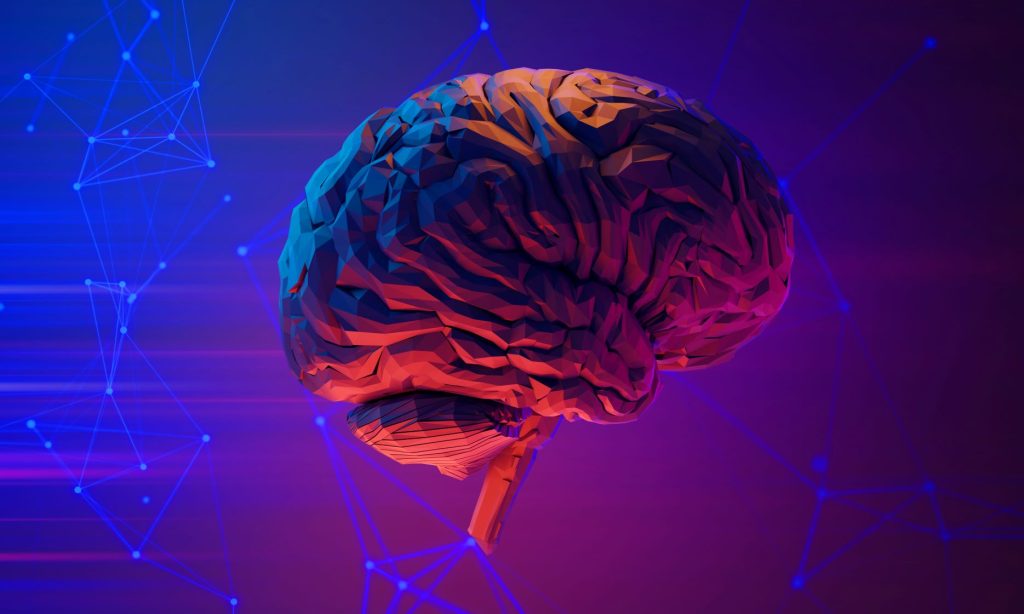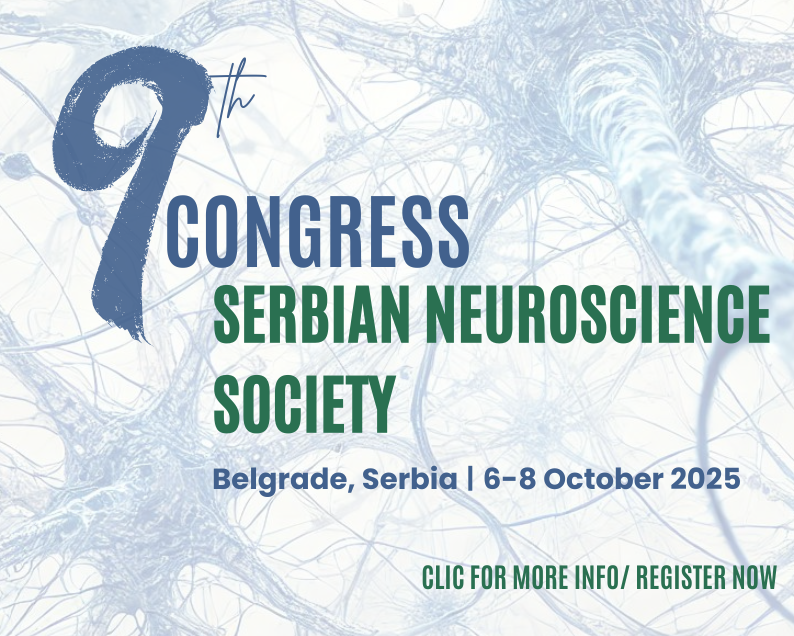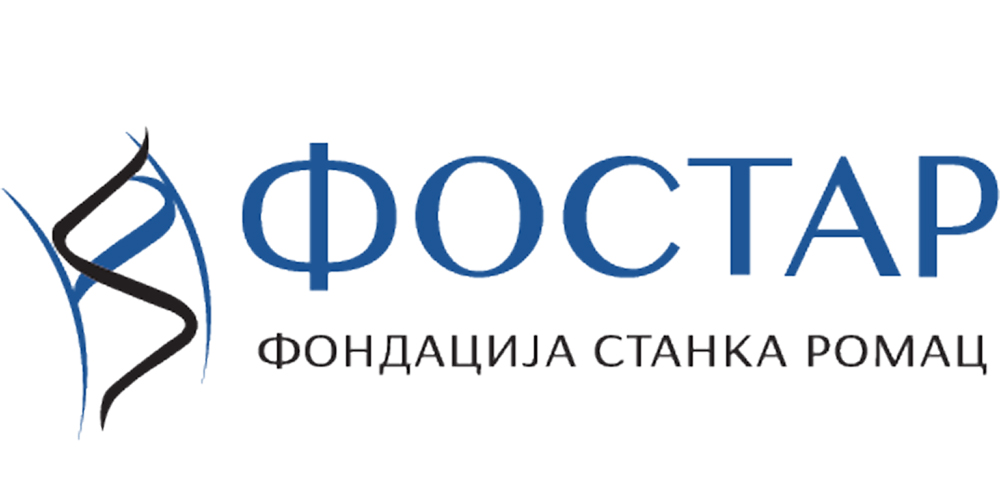
Poštovani članovi društva,
Prosleđujemo vam informaciju o otvorenoj PhD poziciji u Bordou. Sve detalje možete pronaći u nastavku mejla.
Srdačno,
Info grupa DNS
PhD project: Role of 5-HT4 receptors in the modulation of synaptic plasticity within the dentate gyrus: toward a rejuvenation cure?
Position: Ph.D. Student
Deadline: 25 October 2022
Employment Start Date: 26 October 2022
Contract Length: 36 months
City: Bordeaux
Country: France
Institution: University of Bordeaux
Description:
Currently, the therapeutic management of depression remains far from optimal. Only one third of patients respond to a first antidepressant (AD) treatment, a response that takes 3 to 4 weeks to develop. A few years ago, it was proposed that a possible strategy to achieve a rapid AD efficacy would be to enhance synaptic transmission in the dentate gyrus (DG), a subregion of the hippocampus. In line with this hypothesis, we have recently shown that an increase in synaptic plasticity within the DG, induced by a long-term potentiation (LTP) of its main excitatory afference, the perforant pathway (PP), resulted in very rapid AD-like effects in rats (2 days after LTP). Almost all chemical ADs share the common property of increasing central serotonergic (5-HT) neurotransmission by indirect mechanisms (inhibition of reuptake or catabolism), which in turn would be responsible for the delay of action due to the presence of 5-HT1A autoreceptors inhibiting 5-HT electrical activity. About ten years ago, we showed that 5-HT4 receptor agonists were able to bypass this feedback loop by directly stimulating 5-HT neuronal firing, through the mobilization of a positive, long-loop feedback originating from the medial prefrontal cortex (mPFC). They were at least as effective as conventional ADs on several biological and behavioral markers characteristic of AD action, but 5 to 7 times faster, i.e., as soon as 3 days after their administration. Given this similarity in speed of action, the question of whether 5-HT4 receptors are able of enhancing synaptic plasticity in the DG arises. Indeed, although they are highly expressed in this structure, their influence in modulating this plasticity remains almost unknown. We will try to determine to what extent they play a role, by using electrophysiological (LTP) and morphological (arborization, dendritic spines) approaches. The study will be conducted in a systematic way, by carrying out (i) specific deletion of 5-HT4 receptors within the mPFC, (ii) brain 5-HT depletions and (iii) local, intra-DG administrations. Indeed, it will be necessary to dissociate the indirect effects of 5-HT4 receptor agonists, linked to a global increase of central 5-HT activity, from their direct effects on DG neurons. As a corollary, these experiments will allow us to verify the validity of a recent hypothesis, which proposes that 5-HT4 receptors have the power to ‘rejuvenate’ some of the DG neurons. The latter are among the very few neurons in the brain that undergo continuous genesis in adulthood, and they are characterized by an increased propensity for synaptic plasticity during the early phases of this adult neurogenesis.
This project could help to reconcile two theories of depression, which often appear to be antagonistic to each other. Thus, the most widespread theory, called ‘serotoninergic’, could prove compatible with the more recent ‘neuroplastic’ theory, which focuses on rapid AD-type effects. For this, it is precisely necessary to know the role of the 5-HT system, and of 5-HT4 receptors in particular, in the control of neurotransmission in the DG.
Methods:
In vivo electrophysiology (field potentials and action potential population) will be the core of the project. The recordings will allow to evaluate the effects of 5-HT4 agents in the modulation of LTPs of different intensities induced in the DG by high frequency stimulations of the PP. Histological studies will then take place on hippocampal sections taken from the stimulated animals, in order to assess (i) the general morphology of the granule neurons (apparent state of maturity), (ii) the characteristics of their dendritic arborization, and (iii) the density and type of dendritic spines they express.
Conditions:
This funded PhD program, for which the internship supervisor is the project leader, was made on the basis of a mixed fundamental research/clinical research call. A team of psychiatrists (Grenoble University Hospital) will conduct a parallel clinical study to determine whether the addition of a 5-HT4 receptor agonist can accelerate the therapeutic efficacy of a conventional antidepressant in depressed patients. Depending on the results obtained, a joint publication of some of the data could be envisaged, in order to reinforce the potential of the manuscript towards high impact journals.
Please send your CV, together with a letter of motivation and two references, to the contact mentioned below.
Contact Details
Name: Dr Guillaume Lucas
Address: Université de Bordeaux, INCIA, CNRS-UMR 5287, Bâtiment Recherche, 146 rue Léo-Saignat 33076 Bordeaux, France.
Email: guillaume.lucas@inserm.fr
URL: http://www.incia.u-bordeaux1.fr/
—
Dr Guillaume LUCAS
PhD, CR1 INSERM
Équipe “Neurogénèse et physiopathologie”/”Neurogenesis and Physiopathology” group
https://neurocentre-magendie.fr
Neurocentre Magendie
146 rue Léo Saignat 33077 Bordeaux cedex – FRANCE
guillaume.lucas@inserm.fr
Tél: +33 (0)5 57 57 37 82
Fax: +33 (0)5 57 57 36 69
—————————————————
Professor Giuseppe Di Giovanni, MAE
President of the Mediterranean Neuroscience Society
Editor-in-Chief of Journal Neuroscience Methods Elsevier
Honorary Professor, School of Biosciences, Cardiff University, Cardiff, UK
Treasurer Malta Neuroscience Network
Neurophysiology Laboratory, Department of Physiology and Biochemistry
University of Malta, Msida MSD 2080, Malta. Tel.: +356 23402776 (direct)

created by Formatted email subject lines by cloudHQ
On Tue, 12 Apr 2022 at 15:21, Giuseppe Di Giovanni <giuseppe.digiovanni@um.edu.mt> wrote:
Dear MNS members,
I am currently organizing together with my colleague Prof. Dr. Goran Šimić a Special Issue dedicated to our 8th MNS conference in Dubrovnik, entitled “Neuropathological Advances in Brain Disorders from MNS2022“, in collaboration with the “IJMS” (JCR impact factor 5.924; https://www.mdpi.com/journal/ijms), an open-access journal published by MDPI, Switzerland. In particular, the journal has one of its best features in the very short publication times, which makes it a perfect choice for publications regarding hot topics with high competitiveness.
As the Guest Editor of this Special Issue, I believe that some of you could make an excellent contribution. Therefore, I would be thrilled if you submitted a review or research article to this issue. For more details please visit the website:
The journal intends to publish your manuscript as an invited ‘Featured Article’, which means that your submission will be handled on a priority basis and may be chosen as the cover story of the forthcoming issue. As an invited author, you will be entitled to a 15% discount on the Article Processing Charge 2300 CHF.
The deadline for manuscript submission is 31 December 2022. However, the editorial team would like to receive your consent and a tentative title at the earliest convenient time, even if the manuscript is not ready for submission. In particular, I would very much appreciate it if you could let me know if you are interested in submitting a manuscript for this special issue. Obviously, you are also welcome to contact me later if something news comes up. It would be great if you were interested in participating, and I hope to continue this endeavor together.
Finally, you may also share this invitation with your team members and colleagues; student co-authors are most welcome.
Thank you and I am looking forward to meeting you in Dubrovnik and maybe discussing your participation in the SI.
Prof. Dr. Giuseppe Di Giovanni & Prof. Dr. Goran Šimić
Guest Editors
—————————————————
Professor Giuseppe Di Giovanni,
President of the Mediterranean Neuroscience Society
Editor-in-Chief of Journal Neuroscience Methods Elsevier
Honorary Professor, School of Biosciences, Cardiff University, Cardiff, UK
Treasurer Malta Neuroscience Network
Neurophysiology Laboratory, Department of Physiology and Biochemistry
University of Malta, Msida MSD 2080, Malta. Tel.: +356 23402776 (direct)



